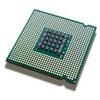Log-Structured Merge (LSM) tree-based Key-Value Stores (KVSs) are widely adopted for their high performance in write-intensive environments, but they often face performance degradation due to write stalls during compaction. Prior solutions, such as regulating I/O traffic or using multiple compaction threads, can cause unexpected drops in throughput or increase host CPU usage, while hardware-based approaches using FPGA, GPU, and DPU aimed at reducing compaction duration introduce additional hardware costs. In this study, we propose KVACCEL, a novel hardware-software co-design framework that eliminates write stalls by leveraging a dual-interface SSD. KVACCEL allocates logical NAND flash space to support both block and key-value interfaces, using the key-value interface as a temporary write buffer during write stalls. This strategy significantly reduces write stalls, optimizes resource usage, and ensures consistency between the host and device by implementing an in-device LSM-based write buffer with an iterator-based range scan mechanism. Our extensive evaluation shows that for write-intensive workloads, KVACCEL outperforms ADOC by up to 1.17x in terms of throughput and performance-to-CPU-utilization efficiency. For mixed read-write workloads, both demonstrate comparable performance.
翻译:暂无翻译




